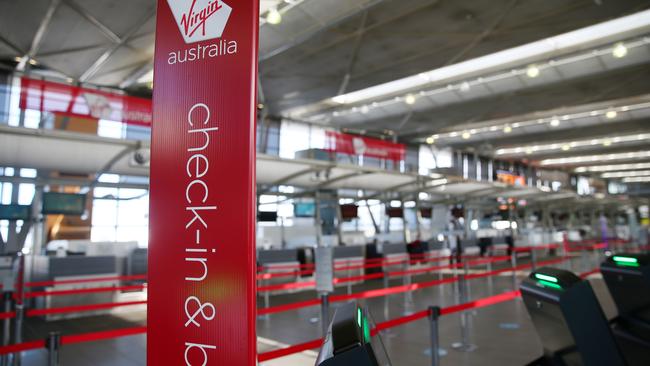
Virgin Australia’s deal team may see large, institutional investors as critical to the success of its initial public offering, but there’s many in the market who believe retail investors hold just as much sway.
And that’s often reflected in who is on the advisory ticket, according to some in the market.
But there’s an argument that if retail investors are to buy into a deal, there needs to be a broker that specialises in attracting their money.
Their role can involve ensuring that the timetable, structure and process for an initial public offering is friendly towards retail investors, and conducive to retail participation.
The sole focus of Wall Street banks is often attracting big institutions into the float, with many being their ongoing clients.
Key when it comes to attracting retail investors is the right investor marketing and enough time in the IPO campaign to educate retail brokers to understand the transaction.
And it doesn’t necessarily involve the lodgement of a prospectus to get retail shareholder demand. In the case with Virgin, the understanding is that a number of firms put forward their credentials in what could be considered an informal pitching exercise, but so far they have been missing from the advisory line-up.
It will be interesting to see if they do surface at a later stage, but that comes with sharing in the fees for the bulge bracket banks.
Perhaps the strategy of Virgin’s private equity owner, Bain Capital, is that retail investors will be lured once the airline is listed.
When department store Myer floated, retail shareholders received store discounts. A similar approach could be taken by Virgin to promote customer loyalty to the domestic carrier in a quest to take market share from Qantas.
While retail investors will be part of what is expected to be a limited IPO by Virgin of about $700m, as was the case with the Guzman y Gomez IPO deal last year, the decision to swerve around them perhaps comes back to Virgin’s checkered past.
Retail investors bought into Virgin Australia’s $325m retail bond offering in 2019, and only months later it collapsed, and they recovered a fraction of their investment.
They have long memories.
Barrenjoey, Goldman Sachs, UBS and Reunion Capital are known to be Virgin Australia’s advisers. A deal could be priced any day after meetings with potential investors last week, following on from a March non-deal roadshow.
The price could be at a discount of about 30 per cent to the price of Qantas, sources say, equating to about 6.3 times its annual net profit, compared to 8.8 times for Qantas.
Private equity owners have opted for a smaller IPO where cornerstone investors are locked in, as part of its plans to list as a business that could be worth between $2bn and $3bn.
The price of Qantas shares has soared in the past year by almost 80 per cent, but a challenge is general market volatility, brought about through the US President Donald Trump’s trade wars.
Some institutional investors are sidestepping the deal, wary that Virgin Australia may have sizeable capital spending requirements, and because efforts to take market share from bigger rival Qantas will come at a cost.
Virgin Australia said it made a record $439m in underlying earnings for the latest half year.
The Dave Emerson-led business was bought by Bain Capital for $700m in 2020 after it collapsed with about $5.15bn of debt.
Bain Capital sold 25 per cent to Qatar Airways for about $750m, valuing the airline at $3bn.
Virgin Australia is the country’s second-largest carrier with 19 million passengers, 7000 staff, 66 domestic routes and the Virgin Velocity loyalty program with 11 million members.





To join the conversation, please log in. Don't have an account? Register
Join the conversation, you are commenting as Logout